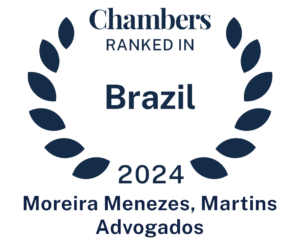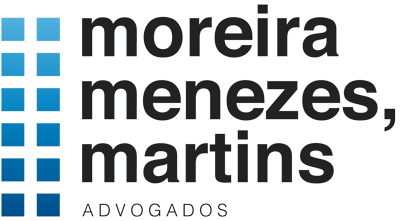Anti-corruption
In the context of business activity, the demand is growing for services for implementation of measures to reduce the risks related to corrupt practices.
Legal representation in anti-corruption matters also aims to defend businesses from formal accusations made by public authorities, and to support firms in: (i) investigations and other processes conducted by public authorities, such as prosecutors and judges; and (ii) negotiation and formalization of leniency agreements, with national and international scope.
The national and international scenarios converge decisively regarding efforts to fight corruption, without frontiers.
Because of the generally initial stage of adoption of anti-corruption measures by Brazilian organizations, some brief considerations about their importance are in order.
The origin of these efforts can be traced to the enactment in the United States of the Foreign Corrupt Practices Act (“FCPA”) in1977. The FCPA has wide scope, aiming to deter acts of corruption of foreign public officials of obtain commercial advantages. It requires companies to keep specific accounting records that reflect their foreign operations and to maintain internal control systems. Foreign Corrupt Practices Act (“FCPA”) pelos Estados Unidos da América (1977). O FCPA abrange de modo amplo a prática de atos de corrupção contra interesses da Administração Pública estrangeira, para obtenção de vantagens comerciais. Obriga as organizações empresárias a preservar registros contábeis que reflitam suas operações no exterior, além de exigir a manutenção continuada de sistemas de controle interno.
Despite its benefits, the FCPA caused a loss of competitiveness of American firms in many foreign countries. For this reason, in the 1990s the U.S. government endeavored to propagate this model of fighting corruption universally. These efforts led to the creation of several international conventions, starting with the Inter-American Convention against Corruption of the Organization of American States (OAS) in 1996, followed by the Convention on Combating Bribery of Foreign Public Officials in International Business Transactions of the Organization for Economic Cooperation and Development (OECD), in 1997, and the Convention against Corruption of the United Nations (UN), in 2003, besides other instruments with regional scope (all told, there are 14 anti-corruption conventions).
In 1998, soon after issuance of the OECD Convention, the American Congress approved the International Anti-Bribery Act (with the professed purpose “to improve the competitiveness of American business and promote foreign commerce”). International Anti-Bribery Act (segundo sua ementa, to improve the competitiveness of American business and promote foreign commerce).
These conventions have led to the internalization of uniform anti-corruption rules by the signatory and acceding nations. In Brazil, the framework on the matter is provided by Law 12,846/2013 (“Anti-corruption Law”), which covers the liability of companies for illicit acts against governmental entities, national or foreign, with rules that have a direct effect on business relations and the internal organization of firms.
The Anti-corruption Law is the centerpiece of the Brazilian system to fight corruption, which includes the international conventions in force in the country (OAS Convention, internalized by Decree 4,410/2002; OCDE Convention, internalized by Decree 3,678/2000; and UN Convention, internalized by Decree 5,687/2006), along with laws that deal with more specific aspects of fighting corrupt practices, such as the Law on Administrative Improbity (Law 8,429/90), Law to Suppress Money Laundering (Law 9,613/98), Information Access Law (Law 12.527/2012), Law to Defend Competition (Law 12,529/2011) and Law on Conflict of Interest (Law 12,813/2013).
Most large Brazilian companies must also comply with the requirements of the FCPA, either because they maintain commercial relations with American firms (which must not only strictly follow the law, but also have to require foreign counterparties to follow similar rules) or because they have securities traded in the American capital market.
Firms’ internal measures to prevent corruption must be formulated taking into consideration their dynamics, not only to assure conformity with the law, but also to encourage compliance by executives and employees and attain gains for the organization.
Therefore, the implementation and ongoing improvement of anti-corruption compliance programs are necessary to demonstrate the firm’s diligence to national and foreign authorities. This is a factor that reduces risks and an important element for defense in administrative proceedings, both to eliminate or reduce penalties and to improve the conditions for negotiating leniency agreements or consent decrees.
For this purpose, techniques are applied that are often updated, such as those regarding integrity programs established in 2016 by the International Organization for Standardization (ISO) in the document entitled Anti-Bribery Management Systems — Requirements with Guidance for Use (ISO 37001:2016).
The Firm’s lawyers have thorough knowledge of all the facets of anti-corruption measures, through research, publication of articles and participation in international discussion forums, such as the Corporate Responsibility and Anti-Corruption Commission of the International Chamber of Commerce, located in Paris, and the International Anti-Corruption Academy, located in Vienna. The Firm renders the following services in this respect:
- Conduction of due diligence to map and classify risks, according to the criteria established by the applicable rules and in light of the sector and activities of the client.
- Coordination of due diligence procedures performed by professional from areas other than law (accounting, finance, operations, etc.), to offer convergent risk assessments and integrated solutions.
- Review of contracts or their termination followed by new contracting with counterparties that satisfy anti-corruption standards and rules.
- Formulation of complete integrity programs, structured according to the characteristics and risks posed by the client’s activities.
- Recommendations for establishment of whistleblowing channels, open and widely disclosed to employees and other parties, along with mechanisms to protect whistleblowers who act in good faith from reprisals.
- Ongoing support in the application of compliance programs, to adapt them to changing needs and improve their effectiveness.
- Review of the client’s governance structure, to integrate it with the anti-corruption policy, by including measures that are binding on management bodies (including the board of directors) and other internal groups specified in law to the bylaws (oversight board and support committees) regarding the execution and monitoring of the compliance program.
- Assistance during M&A transactions, corporate restructuring, formation of joint ventures and other types of business association, to ascertain the existence of irregularities, illegal acts or vulnerabilities of the parties involved.
- Presentations on legal aspects of anti-corruption conformity for periodic training of executives and employees, especially about the execution and compliance of integrity programs.
- Assistance to coordinate internal investigations and other procedures for possible application of disciplinary measures in case of violation of integrity programs.
- Assistance in conducting procedures to assure detection and cessation of irregularities or infractions.
- Assistance in the conduction of procedures to compose interests with outside parties, including public authorities, in the last case through negotiation of leniency agreements or consent decrees.
- Representation of clients in penalty proceedings conducted by Brazilian and foreign authorities (in the second case together with local counsel).
- Monitoring of anti-corruption investigations carried out by Brazilian and foreign authorities (in the second case together with local counsel).
- Defense in administrative penalty proceedings.
- Defense in judicial proceedings involving violation of anti-corruption laws.
- Preparation of legal opinions and memorandums on anti-corruption matters.



